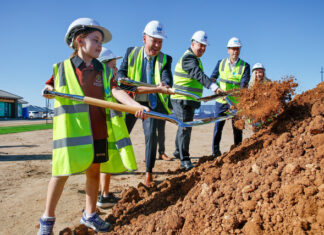THERE was an interesting comment made amongst the theatrics of Gawler Council’s ‘Meet the Candidates’ session.
Delivering the opening line of her two-minute pitch, Louise Drummond told the audience that “local Government is the most important level of Government”.
It’s an interesting line because, while it may be true, voting turnout would point to the contrary.
As reported in The Bunyip today, just 16 per cent of Gawler’s eligible voting population have returned their ballot packs for this election.
It’s why outgoing councillor Diane Fraser has encouraged Gawlerites to use their voice and exercise their democratic rights.
But it begs the question as to why so few ratepayers have done just that.
Gawler has one of the lowest voter turnouts in South Australia this year.
It’s even more worrying considering only 28 per cent voted four years ago.
There’s a similar story in our neighbouring council areas too.
In Playford, only 15 per cent of ballot packs have been returned.
It’s even less in the Adelaide Plains, with less than 1000 ratepayers casting their vote.
Of course voting in council elections is not compulsory, and in a year where ratepayers have already headed to the polls twice, it’s understandable why some may be over the whole process.
However, it brings us back to Mrs Drummond’s original point.
Some people may go their whole lives without ever having any interaction with their local State or Federal member.
But you may interact, either directly or indirectly, with your local council almost daily.
Whether it’s your bins being emptied, your parks being mowed or those pesky rate bills coming in, council impacts our daily lives.
It’s also a regular bone of contention, a source of complaint and frustration.
But when the chance to actually make a change rolls around, the majority of ballots go in the bin.
So to those the message is simple.
Put up or shut up, influence the change you want to see.
Voting closes on November 10.
The clock is ticking









